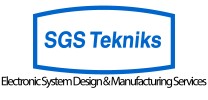
i
Filter interviews by
GK Power Expertise Private Limited Interview Questions and Answers
18 Interview questions
Modulation is the process of varying a carrier signal's properties, such as amplitude, frequency, or phase, to transmit information.
Modulation is used in telecommunications to encode information on a carrier signal.
There are different types of modulation, including amplitude modulation (AM), frequency modulation (FM), and phase modulation (PM).
Examples of modulation include AM radio broadcasting, FM radio broadcas...
A diode is a two-terminal electronic component that allows current to flow in one direction only, while a transistor is a three-terminal electronic component that can amplify or switch electronic signals.
Diode has two terminals, anode and cathode, and allows current to flow in one direction only
Transistor has three terminals, base, emitter, and collector, and can amplify or switch electronic signals
Diodes are used...
Communication is the process of exchanging information, ideas, thoughts, or feelings between individuals or groups.
Communication involves both verbal and non-verbal methods.
Effective communication requires active listening and clear expression.
Examples include speaking, writing, body language, and gestures.
Communication can be one-way or two-way.
Feedback is essential for successful communication.
A microprocessor is a small electronic device that functions as the central processing unit of a computer.
Microprocessors are made up of millions of tiny components like transistors, resistors, and capacitors.
They execute instructions and perform calculations for various tasks.
Examples of microprocessors include Intel's Core i7, AMD's Ryzen, and ARM's Cortex series.
On-page SEO refers to optimizing individual web pages to rank higher and earn more relevant traffic in search engines. Off-page SEO refers to actions taken outside of your own website to impact your rankings within search engine results pages.
On-page SEO includes optimizing content, meta tags, headings, images, and URLs on your website.
Off-page SEO involves building backlinks, social media marketing, and influence...
To solve unapproved ads, review ad policies, make necessary changes, resubmit for approval, and monitor for compliance.
Review ad policies to identify reasons for disapproval
Make necessary changes to the ad content or targeting
Resubmit the ad for approval
Monitor the ad performance to ensure compliance with policies
Identifying the right keywords involves research, analysis, and understanding of target audience.
Start by brainstorming relevant keywords related to your product or service
Use keyword research tools like Google Keyword Planner, SEMrush, or Ahrefs
Consider search volume, competition, and relevance of keywords
Look at what keywords competitors are using
Analyze the performance of keywords through metrics like click-thr...
Sampling theorem states that a continuous signal can be accurately represented by discrete samples if the sampling rate is at least twice the highest frequency component of the signal.
Sampling theorem is also known as Nyquist-Shannon sampling theorem.
It is used in digital signal processing to convert analog signals into digital signals.
According to the theorem, the sampling rate must be at least twice the frequenc...
Encapsulation in Python involves restricting access to certain components of an object, using public, private, and protected attributes.
Public attributes are accessible from anywhere, e.g., 'self.name' in a class.
Private attributes are prefixed with '__' and are not accessible outside the class, e.g., '__secret'.
Protected attributes are prefixed with '_' and indicate that they should not be accessed directly outsi...
This program demonstrates OOP concepts in Python by creating a class to reverse a list.
Define a class named 'ListReverser'.
Create an initializer method to accept a list.
Implement a method 'reverse_list' to reverse the list.
Instantiate the class with a sample list and call the reverse method.
GK Power Expertise Private Limited Interview Experiences
14 interviews found
I applied via Campus Placement and was interviewed in Oct 2024. There was 1 interview round.
(3 Questions)
- Q1. Difference between diode and transistor
- Ans.
A diode is a two-terminal electronic component that allows current to flow in one direction only, while a transistor is a three-terminal electronic component that can amplify or switch electronic signals.
Diode has two terminals, anode and cathode, and allows current to flow in one direction only
Transistor has three terminals, base, emitter, and collector, and can amplify or switch electronic signals
Diodes are used in r...
- Q2. Explain micro processor
- Ans.
A microprocessor is a small electronic device that functions as the central processing unit of a computer.
Microprocessors are made up of millions of tiny components like transistors, resistors, and capacitors.
They execute instructions and perform calculations for various tasks.
Examples of microprocessors include Intel's Core i7, AMD's Ryzen, and ARM's Cortex series.
- Q3. What is communication
- Ans.
Communication is the process of exchanging information, ideas, thoughts, or feelings between individuals or groups.
Communication involves both verbal and non-verbal methods.
Effective communication requires active listening and clear expression.
Examples include speaking, writing, body language, and gestures.
Communication can be one-way or two-way.
Feedback is essential for successful communication.
Interview Preparation Tips
Skills evaluated in this interview
I applied via Campus Placement
(2 Questions)
- Q1. What is modulation
- Ans.
Modulation is the process of varying a carrier signal's properties, such as amplitude, frequency, or phase, to transmit information.
Modulation is used in telecommunications to encode information on a carrier signal.
There are different types of modulation, including amplitude modulation (AM), frequency modulation (FM), and phase modulation (PM).
Examples of modulation include AM radio broadcasting, FM radio broadcasting,...
- Q2. Types of modulation
- Ans.
Modulation is the process of varying a carrier signal's properties to transmit information.
Types of modulation include amplitude modulation (AM), frequency modulation (FM), and phase modulation (PM)
AM varies the amplitude of the carrier signal based on the input signal
FM varies the frequency of the carrier signal based on the input signal
PM varies the phase of the carrier signal based on the input signal
Interview Preparation Tips
- basic electronic
I appeared for an interview in Feb 2025.
(1 Question)
- Q1. Electrical and electronics oriented basic test
Interview Preparation Tips
I appeared for an interview in Feb 2025, where I was asked the following questions.
- Q1. Microcontroller,opamp, microprocessor topics they asked
- Q2. Can you tell me about yourself?
I applied via Walk-in and was interviewed in Sep 2023. There were 4 interview rounds.

(3 Questions)
- Q1. Tell me abut yourself
- Q2. Project Explaination
- Q3. Some basic qus from python
(4 Questions)
- Q1. Written python programs
- Q2. Encaptilation public privete,protect
- Ans.
Encapsulation in Python involves restricting access to certain components of an object, using public, private, and protected attributes.
Public attributes are accessible from anywhere, e.g., 'self.name' in a class.
Private attributes are prefixed with '__' and are not accessible outside the class, e.g., '__secret'.
Protected attributes are prefixed with '_' and indicate that they should not be accessed directly outside th...
- Q3. Difference between list and tuple dict
- Ans.
Lists are mutable, ordered collections of items, while tuples are immutable, ordered collections. Dictionaries are key-value pairs.
Lists are denoted by square brackets [], tuples by parentheses (), and dictionaries by curly braces {}.
Lists can be modified after creation, while tuples cannot be changed once created.
Dictionaries store data in key-value pairs, allowing for quick lookups based on keys.
Example: list = [1, 2...
- Q4. Matric program python
- Ans.
A matric program in Python typically refers to a matrix manipulation program using lists or NumPy.
Use lists of lists to create a matrix: matrix = [[1, 2], [3, 4]]
Access elements using indices: element = matrix[0][1] # Accesses 2
Perform matrix operations like addition: result = [[a + b for a, b in zip(row1, row2)] for row1, row2 in zip(matrix1, matrix2)]
Use NumPy for advanced operations: import numpy as np; matrix = np...
(2 Questions)
- Q1. What is class,object,differnece
- Ans.
A class is a blueprint for creating objects, while an object is an instance of a class. Classes define the properties and behaviors of objects.
A class is a template for creating objects with similar properties and behaviors
An object is an instance of a class, created using the class blueprint
Classes can have attributes (variables) and methods (functions)
Objects can interact with each other by calling methods on each ot...
- Q2. Spot write some programs like how to create class and object then pass one list reverse the list using oops concept
- Ans.
This program demonstrates OOP concepts in Python by creating a class to reverse a list.
Define a class named 'ListReverser'.
Create an initializer method to accept a list.
Implement a method 'reverse_list' to reverse the list.
Instantiate the class with a sample list and call the reverse method.
Interview Preparation Tips
Skills evaluated in this interview
(2 Questions)
- Q1. Previous project details
- Ans.
Led multiple hardware design projects, focusing on high-performance computing and embedded systems for various industries.
Designed a custom FPGA-based accelerator for machine learning applications, improving processing speed by 30%.
Developed a low-power IoT device for environmental monitoring, utilizing energy harvesting techniques to extend battery life.
Collaborated with cross-functional teams to integrate hardware an...
- Q2. Contribution in the project
- Ans.
I played a key role in designing the hardware architecture and implementing critical features in the project.
Led the hardware design team in defining system requirements and architecture
Designed and implemented critical features such as power management and signal processing
Collaborated with cross-functional teams to ensure seamless integration of hardware components
Performed thorough testing and validation to ensure r...
I applied via Naukri.com and was interviewed before Aug 2023. There were 2 interview rounds.
(3 Questions)
- Q1. Introduce yourself
- Ans.
I am a digital marketing executive with 5 years of experience in SEO, SEM, and social media marketing.
I have a Bachelor's degree in Marketing from XYZ University.
I have managed successful PPC campaigns resulting in a 30% increase in website traffic.
I am proficient in Google Analytics and SEO tools like SEMrush and Moz.
I have experience in creating and implementing social media strategies for various clients.
- Q2. Working Experience
- Q3. Common Digital Marketing Questions
(4 Questions)
- Q1. How to identify the right keywords
- Ans.
Identifying the right keywords involves research, analysis, and understanding of target audience.
Start by brainstorming relevant keywords related to your product or service
Use keyword research tools like Google Keyword Planner, SEMrush, or Ahrefs
Consider search volume, competition, and relevance of keywords
Look at what keywords competitors are using
Analyze the performance of keywords through metrics like click-through ...
- Q2. Difference between on page and off page SEO
- Ans.
On-page SEO refers to optimizing individual web pages to rank higher and earn more relevant traffic in search engines. Off-page SEO refers to actions taken outside of your own website to impact your rankings within search engine results pages.
On-page SEO includes optimizing content, meta tags, headings, images, and URLs on your website.
Off-page SEO involves building backlinks, social media marketing, and influencer out...
- Q3. Google, Facebook Ads - Budget - Reach
- Q4. How to solve unapproved ads
- Ans.
To solve unapproved ads, review ad policies, make necessary changes, resubmit for approval, and monitor for compliance.
Review ad policies to identify reasons for disapproval
Make necessary changes to the ad content or targeting
Resubmit the ad for approval
Monitor the ad performance to ensure compliance with policies
Skills evaluated in this interview
I applied via Campus Placement and was interviewed before Jan 2024. There were 2 interview rounds.
(1 Question)
- Q1. Basic electrical, electronics questions
(1 Question)
- Q1. What is frequency, capacitor, Diode , basic electronics questions
I applied via Campus Placement and was interviewed in Jan 2024. There were 2 interview rounds.
It was basic questions
(1 Question)
- Q1. What is sampling theorem
- Ans.
Sampling theorem states that a continuous signal can be accurately represented by discrete samples if the sampling rate is at least twice the highest frequency component of the signal.
Sampling theorem is also known as Nyquist-Shannon sampling theorem.
It is used in digital signal processing to convert analog signals into digital signals.
According to the theorem, the sampling rate must be at least twice the frequency of ...
I applied via Campus Placement and was interviewed in Dec 2023. There was 1 interview round.
(2 Questions)
- Q1. What is nyquist plot
- Ans.
Nyquist plot is a graphical representation of a system's frequency response in the complex plane.
Nyquist plot shows how a system responds to sinusoidal inputs at different frequencies.
It plots the real part of the transfer function against the imaginary part.
The plot can help analyze stability and performance of control systems.
A Nyquist plot can be used to determine the stability of a system by looking at the encircle...
- Q2. What is ohms law
- Ans.
Ohm's law states that the current flowing through a conductor is directly proportional to the voltage across it, and inversely proportional to the resistance of the conductor.
Ohm's law is represented by the formula V = I * R, where V is voltage, I is current, and R is resistance.
It helps in understanding the relationship between voltage, current, and resistance in an electrical circuit.
It is named after the German phys...
Top trending discussions






GK Power Expertise Private Limited Interview FAQs
The duration of GK Power Expertise Private Limited interview process can vary, but typically it takes about less than 2 weeks to complete.
Tell us how to improve this page.
GK Power Expertise Private Limited Interviews By Designations
- GK Power Expertise Private Limited Engineer Trainee Interview Questions
- GK Power Expertise Private Limited Automation Engineer Interview Questions
- GK Power Expertise Private Limited Electrical Engineer Interview Questions
- GK Power Expertise Private Limited Substation Automation Engineer Interview Questions
- GK Power Expertise Private Limited Graduate Engineer Trainee (Get) Interview Questions
- GK Power Expertise Private Limited Validation Engineer Interview Questions
- GK Power Expertise Private Limited Digital Marketing Executive Interview Questions
- GK Power Expertise Private Limited Senior Hardware Design Engineer Interview Questions
- Show more
Interview Questions for Popular Designations
- Senior Executive Interview Questions
- Executive Interview Questions
- Software Engineer Interview Questions
- Software Developer Interview Questions
- Senior Associate Interview Questions
- Graduate Engineer Trainee (Get) Interview Questions
- Accountant Interview Questions
- Data Analyst Interview Questions
- Show more
Overall Interview Experience Rating
based on 16 interview experiences
Difficulty level
Duration
Interview Questions from Similar Companies
GK Power Expertise Private Limited Reviews and Ratings
based on 55 reviews
Rating in categories
|
Protection Engineer
9
salaries
| ₹2.7 L/yr - ₹7.9 L/yr |
|
Substation Automation Engineer
8
salaries
| ₹3.6 L/yr - ₹6.4 L/yr |
|
Scada Engineer
7
salaries
| ₹3 L/yr - ₹4.2 L/yr |
|
Graduate Engineer Trainee (Get)
5
salaries
| ₹2.3 L/yr - ₹2.4 L/yr |
|
Senior Protection Engineer
5
salaries
| ₹2.8 L/yr - ₹7.5 L/yr |

Prama Hikvision India

Alfanar

MCM Telecom Equipment

Sgs Tekniks Manufacturing
- Home >
- Interviews >
- GK Power Expertise Private Limited Interview Questions












